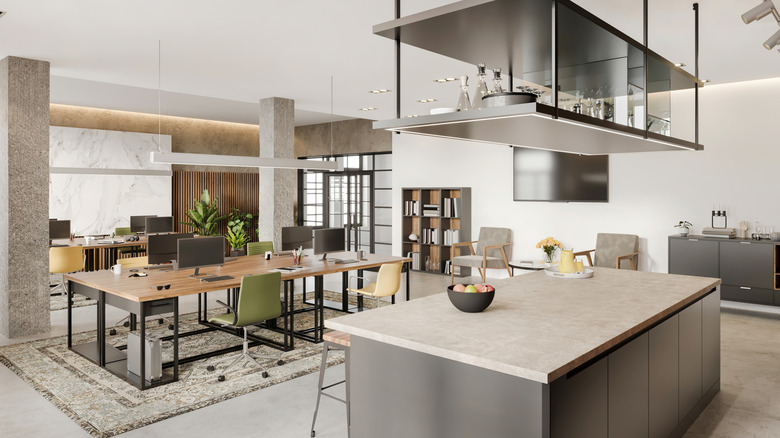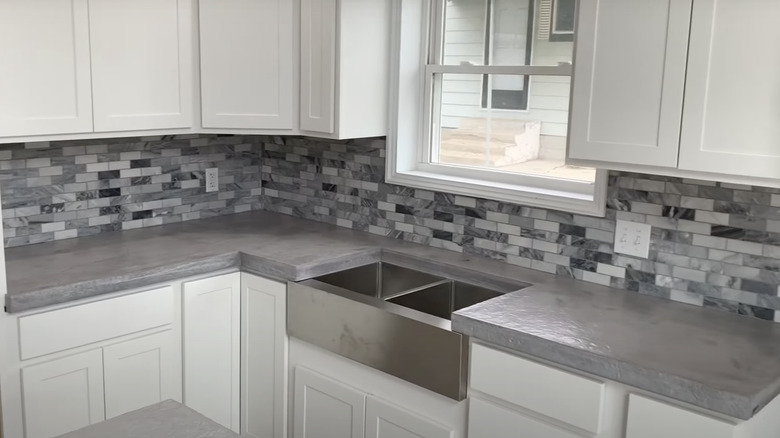The Most Heat-Resistant Countertop Material For Your Kitchen
Designing a kitchen is all about curating the space that's best for you. Whether you want things bright and retro or dark and moody, your kitchen has to suit your needs beyond aesthetics. Amidst the fuss over the best appliances and decorative backsplashes, don't forget about one of the most used areas of your kitchen: the countertops. We spoke to Thomas Borcherding, owner and lead designer at Homestar Design Remodel, to find out what material you should be using for yours.
While granite kitchen countertops were the dominant style for years, Borcherding suggests another option instead. "Concrete is a naturally heat-resistant material that can experience significant temperatures without degradation or morphing due to its mineral composition," he explains. In short, it takes a lot to break or scuff concrete, even with tools that are fresh out of the oven.
There's more. "Homeowners who have concrete countertops can rejoice, for they can rest their pots and pans directly on their countertop without risk of damage," Borcherding says. This is great if you don't have time to set out hot pads, or if you're working with limited space and need a surface that can withstand hot food. "Further," he adds, "concrete experiences a cool surface temperature making it a great material for bakers who wish to knead dough or perform other baking activities on it." So skip worrying about the steep cost of marble countertops — concrete might better suit your kitchen.
More on concrete countertops
Naturally, concrete will require different care than stone countertops, so before installing, it's important to know how to manage it. "Concrete is naturally porous and must be sealed [using] a deep-penetrating sealer," Thomas Borcherding explains. Its pores are what make concrete great for high-heat environments — from small apartment islands to a bakery warehouse where doughs are rolled and cakes are cooled — but it needs to be sealed to prevent cracking or chipping. "I advise applying multiple coats of sealant to your concrete initially, and then as advised by your product's instructions," he continues. "This could mean reapplication every year or every few years depending on the product you choose to go with."
On the other hand, concrete is extremely easy to clean. While some surfaces may require specialty solutions or are best cleaned with natural ingredients like baking soda, all concrete needs is a sponge bath with dish soap and water. This speeds up the process and means you can ditch the chemical cleaning clutter under your sink. And remember, concrete countertops don't have to look like the floor of an unfinished basement — there are many varieties with different finishes and flecks of color that will add a sleek edge to your kitchen. So not only will you have a stylish kitchen, but a countertop that literally won't crack under pressure and could be perfect for your fast-paced lifestyle.


